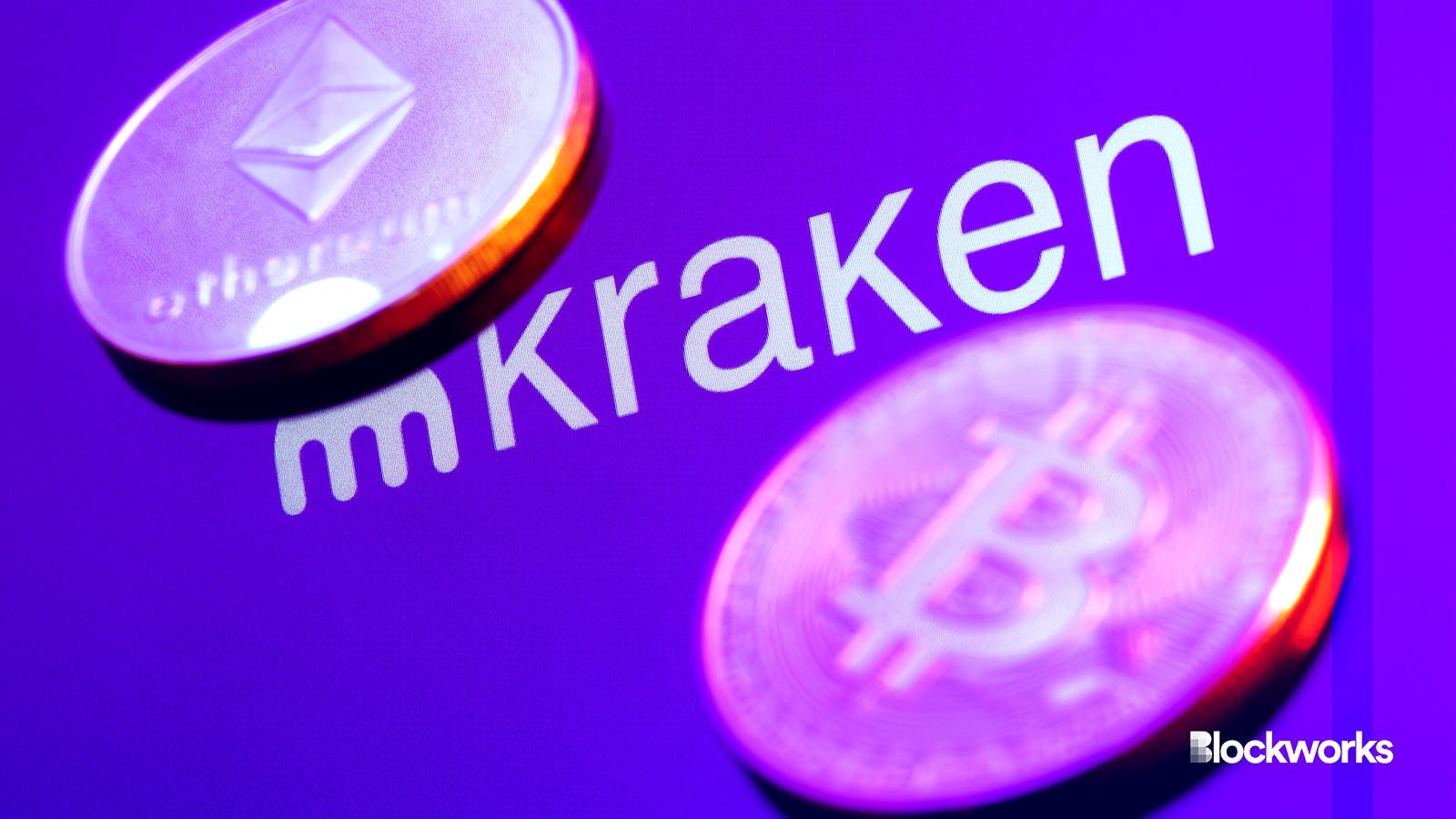SEC accuses Kraken of commingling customer funds, operating unregistered exchange
The allegations came in a new lawsuit filed by the US securities regulator on Monday

Sergei Elagin/Shutterstock modified by Blockworks
The US Securities and Exchange Commission accused crypto exchange Kraken’s parent companies of operating an unregistered exchange.
The allegations came in a new lawsuit filed by the US securities regulator on Monday. The claims follow similar allegations contained in court complaints against Coinbase and Binance filed earlier this year.
Payward and Payward Ventures were named as defendants in the new lawsuit. Kraken did not immediately return a request for comment.
“Kraken’s business practices, deficient internal controls and inadequate recordkeeping present a range of additional risks that would also be prohibited for any properly registered securities intermediary,” the complaint alleges.
An accompanying SEC press release alleges that Kraken has “made hundreds of millions of dollars unlawfully facilitating the buying and selling of crypto asset securities” since at least 2018.
The SEC claims that Kraken knowingly “engaged in the conduct of a securities exchange” and also “described itself as one,” though it is not.
The regulatory agency claims that Kraken operated not only as an unregistered exchange but also as an unregistered broker, dealer and clearing agency.
In addition to operating without registration, the SEC claims that Kraken commingled customer crypto assets “with its own.”
According to the suit, an independent auditor reportedly hired by Kraken identified in its audit report that Kraken’s commingling presented “a significant risk of loss” to its customers.
“In fact, Kraken has at times paid operational expenses directly from bank accounts that hold customer cash,” the suit alleges.
“In failing to prevent known conflicts of interest and commingling its investors’ assets with its own, Kraken demonstrates why registration and the investor protections that come with regulatory oversight are critical to the soundness of the United States capital markets,” the SEC said.
Additionally, the SEC’s complaint listed out crypto assets it claims are securities. The list is unsurprisingly familiar, with many of the tokens targeted listed in the Commission’s suits against both Binance and Coinbase. Examples include AXS, ALGO, ATOM, MATIC, SOL and DASH, among others.
Earlier this year, the SEC accused Binance of commingling customer funds. Binance has denied the SEC’s claims.
In February, Kraken settled with the SEC over its crypto staking program. It did not, however, admit nor deny the SEC’s allegations.
“At all relevant times, the Kraken Staking Program was offered and sold as an investment contract and therefore a security whose offers and sales were subject to the registration requirements of the federal securities laws,” the SEC said in a court filing at the time.
Kraken, in a blog post, said that the “law is on our side.”
“We disagree with the SEC’s complaint against Kraken, stand firm in our view that we do not list securities and plan to vigorously defend our position. The SEC has repeatedly challenged crypto exchanges to come in and register without a single law supporting their position and no clear path to registration. And despite opposition from lawmakers, the SEC continues to pursue legal action against these crypto exchanges,” a Kraken spokesperson told Blockworks in an email.
“We believe Congressional action is the most appropriate path to resolving the lack of regulatory clarity in the US. It is disappointing to see the SEC continue down its path of regulation by enforcement, which harms American consumers, stunts innovation and damages U.S. competitiveness globally.”
Ben Strack contributed reporting.
Updated Nov. 20, 2023 at 6:04 pm ET: Clarified the SEC’s complaint regarding the crypto assets it considers securities.
Updated Nov. 21, 2023 at 9:01 am: Added statement from Kraken.
Get the news in your inbox. Explore Blockworks newsletters:
- The Breakdown: Decoding crypto and the markets. Daily.
- 0xResearch: Alpha in your inbox. Think like an analyst.






